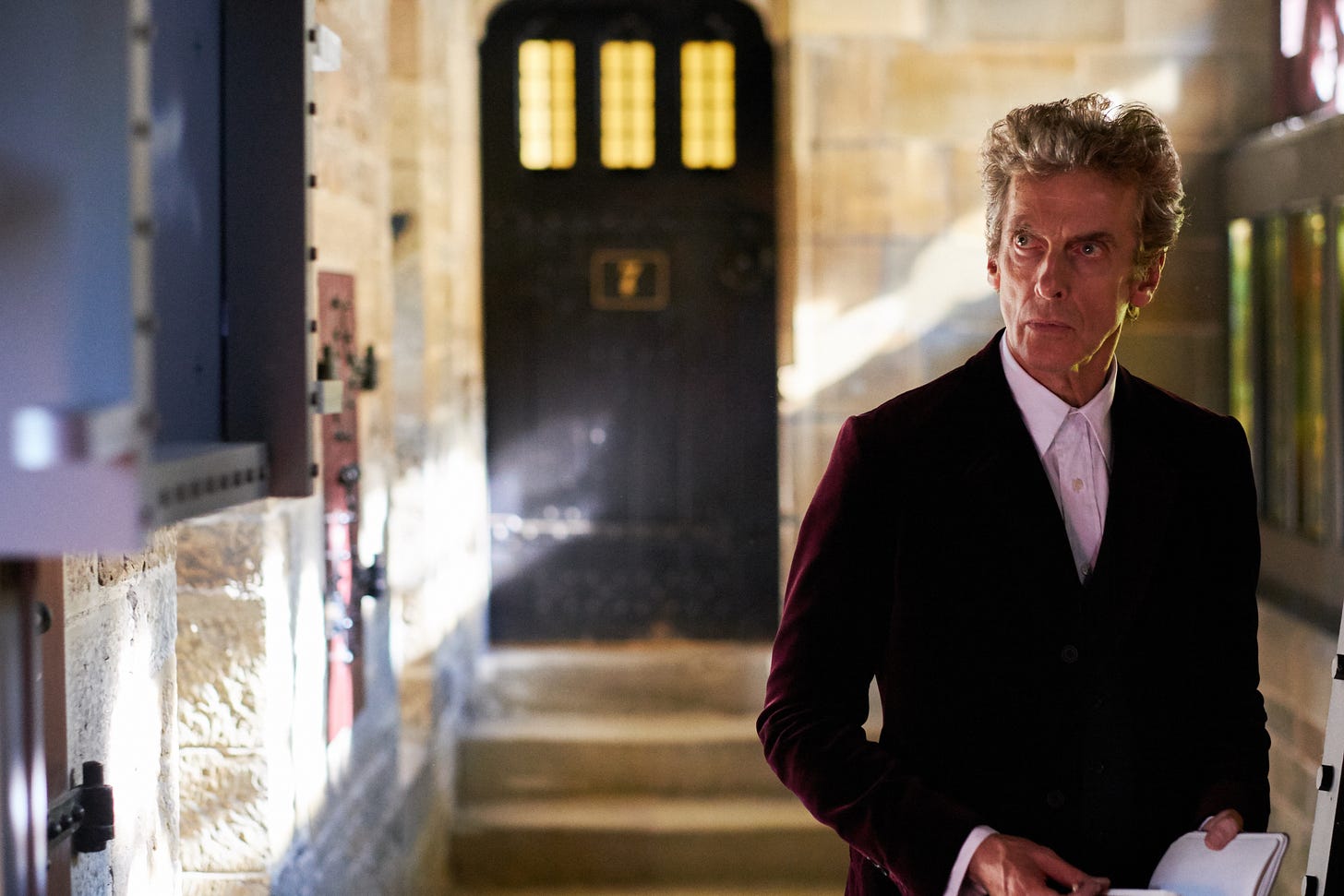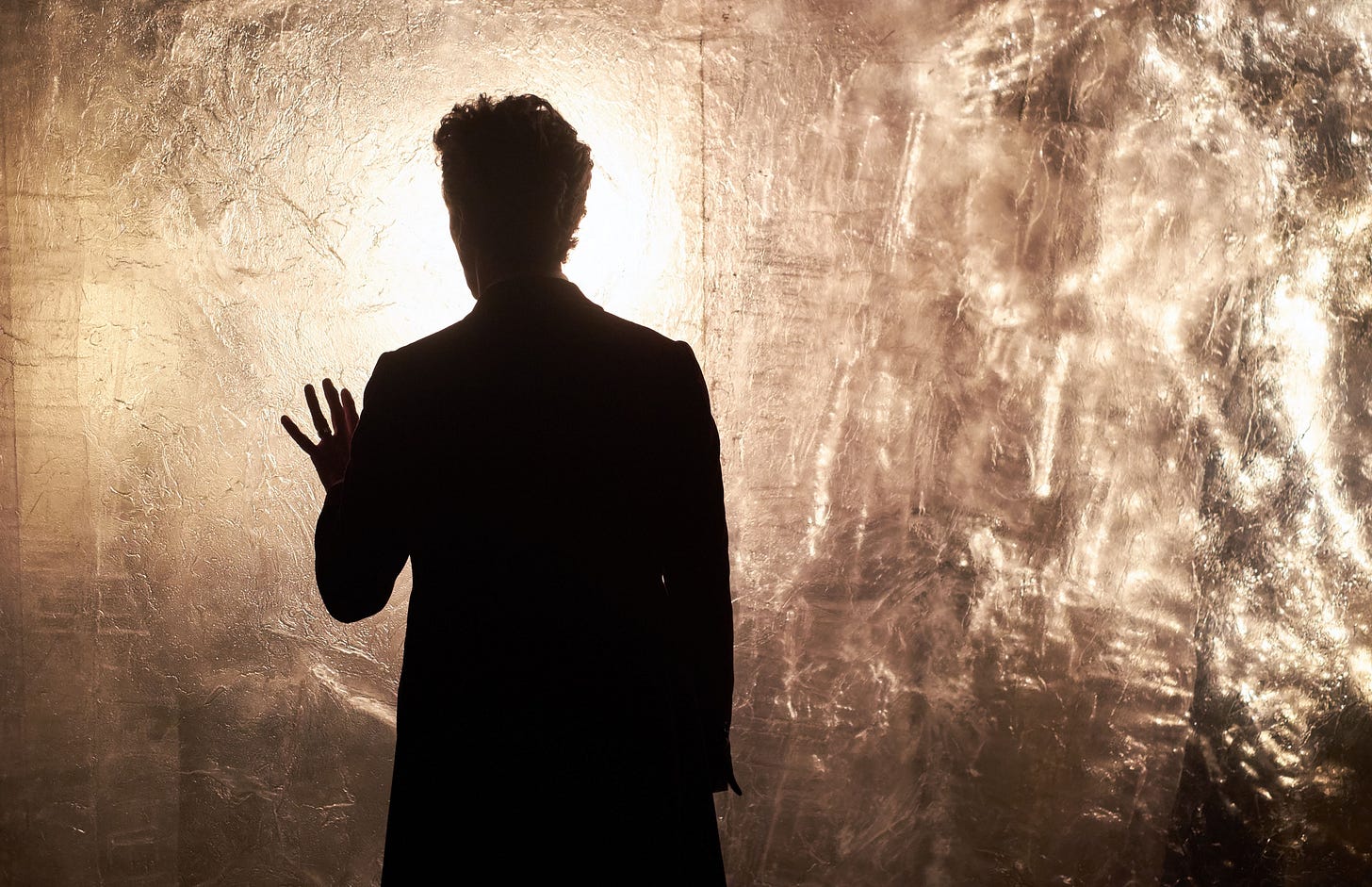The Best Episode of Doctor Who Ever?
We confess: 'Heaven Sent' might be overrated.
Plot Summary:
Distraught over the death of Clara, the Doctor must find his way out of a puzzle-box castle prison while staying one step ahead of a mysterious veiled creature.
Notable for:
Rated best-ever Doctor Who story in latest Doctor Who Magazine poll.
However, it was not rated the best 12th Doctor story, which was polled separately. That honor was bestowed upon World Enough and Time/The Doctor Falls.
Peter Capaldi is (almost) the only speaking role.
Jami Reid-Quarrell previously played Colony Sarff.
“I’m nothing without an audience” marks Capaldi’s most obvious breaking-the-fourth-wall moment. Stage direction said he should give “the briefest of glances at the camera.”
The “heaven for bad people” was likely inserted after shooting to justify the title, which was not final until afterward.
“The long way around,” is a callback to the final line in The Day of the Doctor.
Moffat gave an interview in DWM 495 that addressed some of the inconsistencies between “loops.” He also said that each loop takes about 3 weeks.
Alisa Stern, Creator of Doctor Puppet, Rejoins Pull To Open:
Big thanks to Alisa for coming on the show to share her thoughts on Heaven Sent! You can see Alisa’s work at:
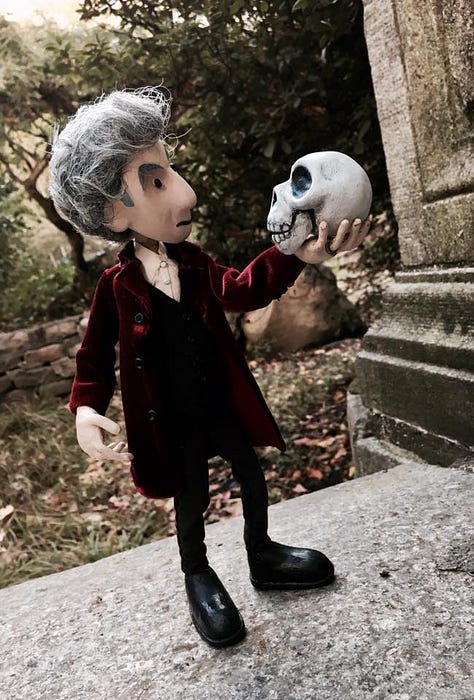
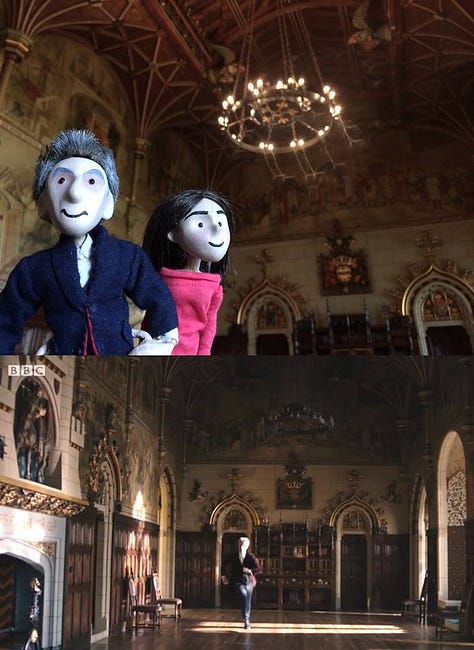
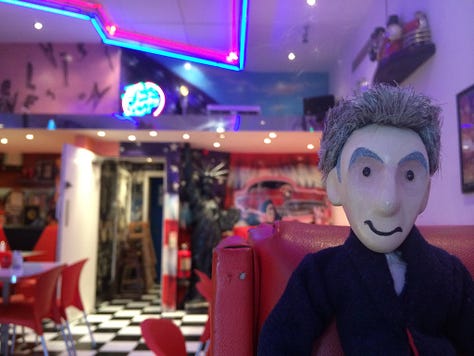
Pete commentary:
This is peak Peter Capaldi. He absolutely owns this episode, giving perhaps the best performance of his run, though he as so many good ones it’s hard to choose. More importantly, he plays the Doctor as grieving. He’s angry, ready to turn all his cleverness and ingenuity against the person or persons responsible for Clara’s death.
While doing so, however, he’s forced by the confession dial to confront his own nature, and understand how he is responsible for leading himself and Clara to this point. He also knows that if he really confesses, it will all be for nothing.
The TARDIS scene where he reveals his thinking process — ”Assume you're going to survive. Always assume that” — is utterly amazing. I love that it showcases the Doctor is perhaps more audacious than utterly reckless. When he takes the action (jumping out the window), that’s not when he started thinking and considering. That happened long before, and his bold move is the end of the process, not the beginning.
The “puzzle box” of the plot is quite brilliant. You understand that it’s a prison, that someone quite powerful is keeping him there. The rules are pretty clear: rooms reset, but it takes time. Confessing to the creature causes it to pause. There is no time travel from where he was teleported on Earth. The key to everything is in Room 12. Not much more than that, but enough to go on.
The reveal that he’s going round and round (well, different versions of him are) puts it all together brilliantly, and the montage at then end is superbly edited. You get so caught up in the moment, you might actually not hear the Doctor’s retelling of the Brothers’ Grimm story about the shepherd boy who tells the tale about the bird and first second of eternity. It’s genius, though it makes you wonder: How is the Doctor supposed to understand that from “Bird?”
It only works with the line, “I can remember it all.” This is questionable — I don’t think we’re to assume that the Doctor now literally remembers 4.5 billion years of memories. But he does suddenly understand and tap into — perhaps telepathically — some of the memory, especially about the nature of this place, in that moment.
There are some things that may or may not be plot holes, given the nature of the loop. Moffat addressed some of them in DWM 495, but not all. Here are the ones I saw:
Clothes: The Doctor finds the clothes of his immediate predecessor by the fire. You have to ask, then, what did the very first Doctor to go through the loop find? Moffat said that the Doctor initially found an entirely different set of clothes to change into in another room. Then one of the Doctors misses the clothes room (could have even been the second guy) and now the loop is set. But then there’s the problem of the reset (see below).
Skulls: There are a lot of skulls when the Doctor falls in the water — 7,000 years’ worth. But if there are so many that the essentially take up the entire “seabed” some 20 feet down or so, what happens after a million years? Or a billion? The place should be overflowing with them. (Here’s where I think the Clara splinter can help.)
Stars: The Doctor sees that the stars are out of place by about 7,000 years. Which makes a ton of sense — they wouldn’t have moved a ton, but they would have moved significantly so that the picture would be discernible, but different. However, after a million, billion, etc. years, the stars would have moved so much that they wouldn’t look like anything. Here, you have to headcanon this such that the Doctor has traveled so much that he still knows what the stars would look like at “one light year” from Earth.
Speaking of, where the hell is that exactly? Somewhere in the Oort cloud?
Painting: It’s unclear how the painting got there — if it’s part of the castle, why is it faded? The implication seems to be that the Doctor painted it thousands of years ago. That’s fine, and perhaps every 10,000 or 50,000 years (however much time it takes for it to completely wither away), he does a new one. But that makes you wonder
Reset: What is reset and what isn’t? What are the rules? If the rooms are reset, why do his clothes stay by the fire? And the painting? Reset or not? What about the “I am in 12” message? The diamond wall not being reset seems OK since that seems to be outside the actual castle puzzle box — rather, it’s the literal barrier around the dial, not part of it. Moffat explained that a previous version of the Doctor escaped the Veil at the end and managed to scrawl the message in the garden, and in a few other places, including the back of the painting. There’s a short story from another issue of DWM that “reveals” that the Veil is actually a separate being, not just a living nightmare, and that it must physically tidy up all the rooms — that they’re not just reset automatically by a “closed energy loop,” as the Doctor suspects. However, that makes the disappearing bloodstains at the end hard to explain. Also: why didn’t the Veil age?
Doctor TARDIS “always assume you’re going to survive” scene nicely bookends the Missy scene in The Witch’s Familiar.
The Doctor left Gallifrey because he was scared. But of what? Hybrid, it seems. That’s a little diminishing of the story here, and I wish it was more fleshed out or more explicitly about something in the Doctor’s character. His fear of responsibility, perhaps — though the problem becomes, if you want to change him, why would he continue traveling at the end.. The idea that he’s no longer scared at the end — or that, even if he is, he must act — is very good, though somewhat cheapened since he now knows he’ll be resurrected.
What did Pete’s family think?
Grace liked it, thought it was scary, though she was a little confused at times.
Four Questions to Doomsday - Pete
Why did the Randomizer take us here? The Girl Who Waited emphasizes the Doctor’s recklessness, and Heaven Sent gives it even more meat with the whole “jump out of the window” scene. This whole season (Series 9) is about Clara becoming more like the Doctor, then dying because of it, because of course she can’t regenerate. Here, because the Doctor is alone, we see the advantage his perspective gives him, precisely because he is a Time Lord and has hundreds of years of knowledge built up — he’s incredibly clever, and with his mind he can stack the deck in his favor. When he doesn’t have someone else to worry about, he can risk even more.
In Planet of the Daleks, the Doctor thinks he loses Jo, and he’s fairly “whatevs” about it by the next scene. Here we see a fully fleshed-out grieving Doctor, Capaldi showing Pertwee (and, to be fair, Terry Nation) how it’s done.
Also, lots of background on the Doctor’s past is revealed here, another obvious connection to Planet of the Spiders.
What if the evil plot had succeeded? If the Time Lords’ evil plot succeeds, the Doctor confesses, presumably. He tells everything he knows (or thinks he knows) about the hybrid, and they… what? Release him? (That’s what Rassilon claims in Hell Bent.) Put him in a conventional prison? The thing is, Hell Bent implies he doesn’t really know. And if he confesses, “You got me — I don’t know anything about the hybrid,” he doesn’t get back to Gallifrey and won’t get a chance to save Clara in the next ep.
Where's the Clara splinter? She comes in every few million years or so and clears out the skulls. Not all of them — just enough to ensure the water never gets too full.
Dalek, Ogron, Professor Hayter, Viscount Banger, Fixed Point in Time, Lady Cassandra, or Zarbi? I feel obligated to give it a Banger for Capaldi’s performance alone. Though I will say I believe it’s a tad overrated. It’s not the best of the best of the best, but it does walk among them.


